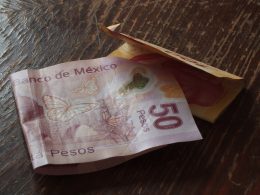As the world continues to rely on technology for everything from communication to transportation, we cannot ignore the role of cobalt in powering these devices. Often overlooked and undervalued, this critical metal plays a crucial part in batteries used in electric cars and smartphones. But what happens when one country holds most of the world’s supply? With China’s increasing dominance over cobalt, it raises questions about potential impact on global supply chains. This blog post explores the current state of China’s control over cobalt resources and its implications for industries worldwide.
What is cobalt?
Cobalt is a chemical element with the symbol Co and atomic number 27. It is a hard, lustrous, gray metal with a high melting point. Cobalt is found in the earth’s crust in small amounts, usually in combination with other elements such as sulfur, arsenic, lead, or nickel. The free element, produced by reductive smelting, is a hard, silver-gray metal.
Cobalt has numerous industrial and military applications due to its unique physical and chemical properties. For example, cobalt is used in jet engines and gas turbines because of its high melting point and resistance to heat and wear. Cobalt is also important for the production of batteries, magnets, pigments, and even cancer treatment drugs.
China controls about two-thirds of the world’s supplies of cobalt — a key component in rechargeable batteries that power electric vehicles (EVs). In recent years, Beijing has been stockpiling the metal amid concerns about potential supply disruptions and an anticipated surge in demand from China’s burgeoning EV industry.
This growing dependence on Chinese supplies has alarmed policymakers and companies around the world that are worried about Beijing’s ability to use its dominance over this critical raw material to exert undue political pressure. These concerns have led some countries and companies to seek alternative sources of cobalt outside of China.
China’s control over the cobalt market
China has been increasingly exerting its control over the cobalt market in recent years, and this is having a major impact on the global supply chain. Chinese companies now account for more than 80% of the world’s production of cobalt, and they are also the largest consumers of the metal. This gives China a great deal of power over the price of cobalt, and it is able to manipulate the market to its advantage.
This control over the cobalt market has led to fears that China could use its dominance to disrupt the global supply chain. There are concerns that China could restrict exports of cobalt or impose export taxes, which would drive up prices and create shortages. There is also worry that China could begin stockpiling cobalt, which would further increase prices and create even more disruptions.
These concerns are not without merit, as China has already used its power in the cobalt market to benefit itself. In 2017, China placed a 10% export duty on cobalt ore, which caused prices to skyrocket. This was followed by a crackdown on illegal mining operations in Congo, which is one of the world’s largest producers of cobalt. The crackdown led to a sharp decline in production, and this helped push up prices even further.
The situation in Congo is a perfect example of how China’s control over the cobalt market can have a major impact on the global supply chain. For years, Congo has been one of the main sources of cobalt for companies
The implications of China’s monopoly
China is the world’s largest producer of cobalt, accounting for more than 50% of global production. This gives China a significant amount of control over the global cobalt supply chain.
There are a few key implications of this monopoly:
1) China can dictate prices – Since China controls such a large portion of the world’s cobalt production, they have a significant amount of power when it comes to setting prices. This can be advantageous for Chinese companies, but it can also lead to higher prices for consumers and businesses that rely on cobalt.
2) China can influence the quality of cobalt – Cobalt produced in China is not always held to the same quality standards as cobalt from other countries. This can create problems downstream in the supply chain, as lower-quality cobalt may not meet the needs of consumers or businesses.
3) China can restrict exports – If China decides to restrict exports of cobalt, it could create a shortage in the global market and drive up prices even further. This would be particularly detrimental to businesses and consumers that rely on cobalt for their products and operations.
How this will affect the global economy
The Chinese government has been making a concerted effort to gain control over the world’s supply of cobalt. Why? Because cobalt is an essential component in the production of lithium-ion batteries, which are used in everything from electric vehicles to smartphones. And as China looks to dominate the global market for electric vehicles, it wants to make sure it has a secure supply of cobalt.
How this will affect the global economy is yet to be seen, but it could have major implications. For one, it could lead to higher prices for cobalt as China tries to control the market. This would make it more difficult for other countries to produce electric vehicles and other products that rely on lithium-ion batteries. Additionally, it could give China an unfair advantage in the race to dominate the electric vehicle market. We will have to wait and see how this plays out, but it is certainly something worth watching closely.
What can be done to mitigate the effects
There are a few things that can be done in order to mitigate the effects of China’s growing control over the cobalt supply chain. For one, other countries can look to develop their own domestic sources of cobalt. This will help to ensure that there is not complete reliance on China for this important resource. Additionally, companies can work to diversify their supplier base, so that they are not as reliant on any one country for cobalt supplies.
It is also important to note that while China does have a large share of the world’s cobalt reserves, it is not the only country with significant reserves. Other countries, such as Congo and Russia, also have large deposits of cobalt. Therefore, it is possible for the global supply chain to become less reliant on China if other countries develop their own production capabilities.











